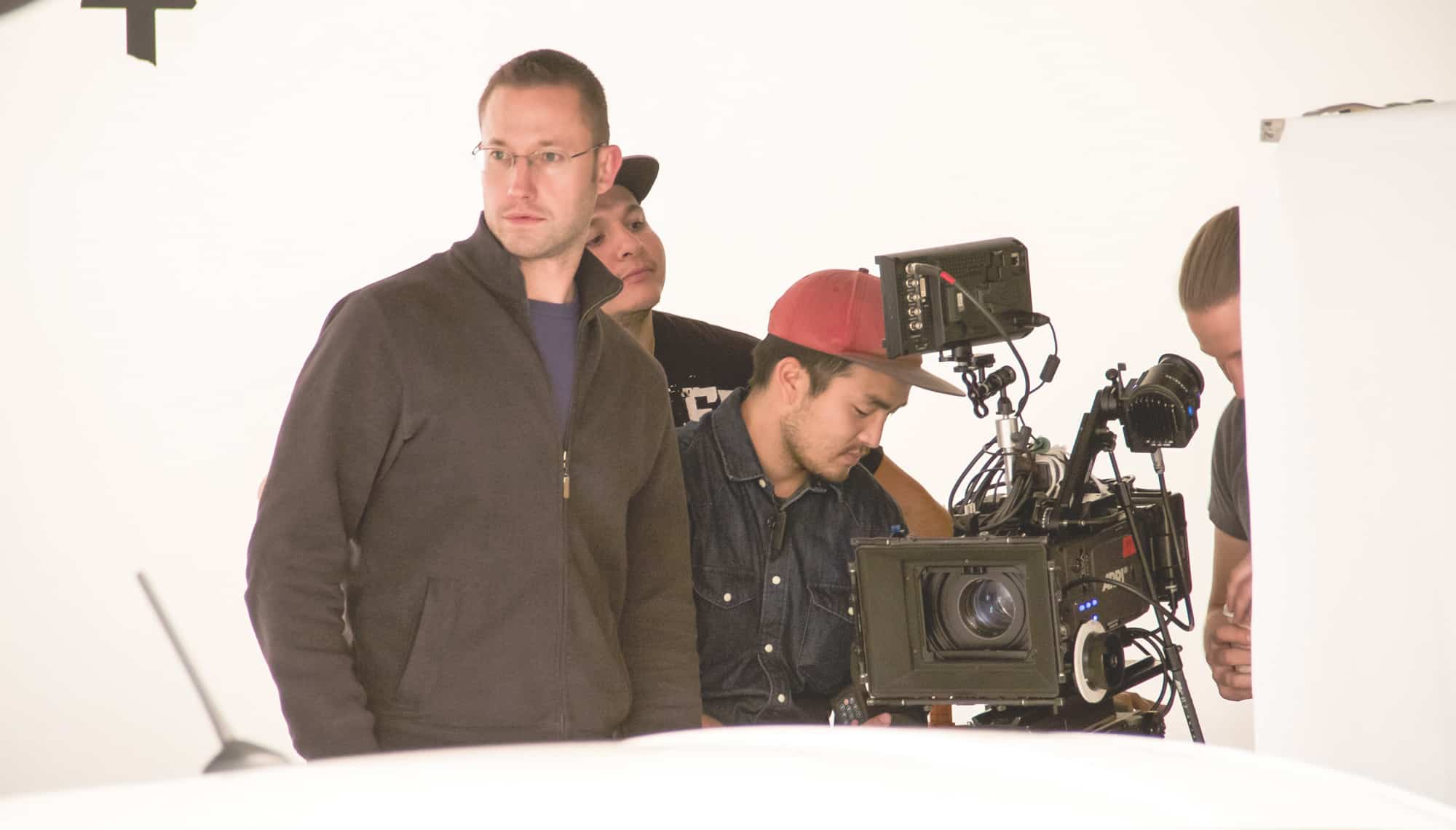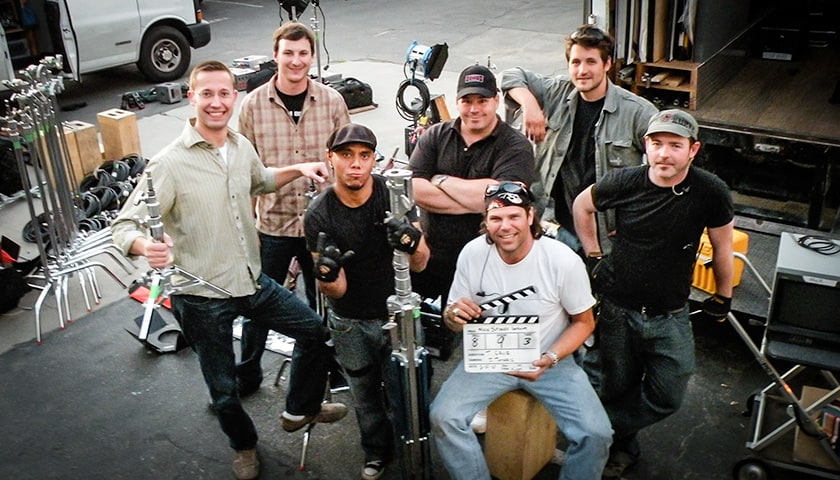The cinematographer, also known as the director or photography (DP) is one of the three key people responsible for the look of the movie. With the production designer crafting the look of the environment, and the director responsible for the actor’s performances in that environment, the cinematographer photographs the action, creating a look through light and the lens. That makes hiring the best available cinematographer the smartest decision you can make for your film.
A good cinematographer’s skills are robust:
- Understand the story and how to ensure each scene has proper coverage
- Understand the technicalities of lighting and the lens
- Know how to create emotion through lighting, lens choice, camera movement, and color grading
- Know how to lead the crew
- Know how to balance the director’s wishes against the realities of the production – especially if it is a first time or inexperienced director
- Know what it takes to shoot each scene to make sure the production ends up on time and on budget
These skills and experiences develop over time; through working with different directors on different projects. Each genre, budget, location, and project type – from commercial to feature film – has its own challenges, and it only through working through these on set that the DP will truly gain experience.
It used to be that many film school graduates began their careers by working in a camera rental facility sweeping floors, driving trucks and trying to make connections with cinematographers as they came in to rent cameras for real productions. If they were successful in making a good contact, they may get a job as a 2nd AC on a feature. The 2nd AC is in charge of loading the film, maintaining camera logs and marking each shot with the clapboard. After working on a few dozen features as a 2nd AC, he would be able to move his way up to a 1st AC. Responsible for pulling focus, setting up, maintaining and moving the camera, the 1st AC will work in this capacity for several dozen films until he graduates to the camera operator position. After years of working in the camera department, the camera operator may be offered the DP position on a small project.
The second, more common route was through the electric department, from electrician to gaffer to DP. It’s easier to find a camera operator who knows a particular camera than it is to find a person skilled at lighting, and because lighting is the cornerstone of good cinematography, the best DPs are masters of light. Yes, knowing the camera is important, but a good DP knows the physics of the lens, understands the dynamic range of the camera’s imaging sensor, and the color curves. As far as the actual operation of the camera itself, he relies on the camera operator and 1st AC to build, set-up, and manage the camera.
Today, with the affordability of high-quality digital camera systems, many aspiring DP’s purchase their own gear and begin a career as a DP, bypassing the traditional Hollywood system. Although these young DPs may know how to produce a quality image, their lack of experience in the production process can be detrimental to you and the movie. Remember a good DP needs two basic skills – a keen photographic eye and the experience to successfully guide the production to completion. Recent film school grads often lack the real-world experience of constructing a long-term production from concept to completion – and you don’t want your film to be their training ground.
When it comes time to hire the DP, consider the following tips to help you find the best, most qualified person:
- Contact your local film commission, post an ad on craigslist.org or any crew web site, and ask for online links to web sites and demo reels. When you begin looking at DP reels, look at:
- Are the shots well framed and motivated by the story?
- Is there a strong visual continuity from shot to shot? Even though this responsibility ultimately lies with the director, if the shots don’t work, then ask why the DP didn’t help the director improve the quality of coverage.
- Does the lighting have a style that positively contributes to the story? Does the picture look professional? Are there any shots that are over- or underexposed?
- How does the camera move? Are camera movements necessary and do they contribute to the story, or are they frivolous?
- Does the cinematography pull you into the story?
- Meet with prospective DPs to see if your styles are compatible. Look at her demo reel and talk to her about her approach to lighting a scene. Discuss your story and see if it resonates with her. Much like auditioning an actor, your quest to find a cinematographer lies not only in your comfort level with her craft, attitude, and professionalism, but also in her ability to work with you to fulfill your vision.
- Once you choose your DP, sit down with him and show him scenes from movies that you like the look of. Gather various examples of styles, camera movements, and lighting that you’d like to see in your movie and listen as the DP explains how to approach these styles. You both should be on the same page as to the style and look of the movie, enabling the DP to determine the equipment needed for the production. Discuss:
- Camera movement: Are you looking for static setups? Tableau shots? Handheld, documentary-style shots? Dolly or crane moves? Steadicam? Long takes? Short takes? How are you looking for the camera to interact with the environment and the set?
- Lighting: Are you looking for flat (1960s Technicolor), colorful (Amélie), black and white (Schindler’s List), monochromatic (Minority Report) or tinted lighting (The Matrix)?
- Style: Do you want a documentary (Babel, Traffic), poetic (Amélie), or dramatic (Titanic) style?
- Editing: How will the movie be cut together? Are you using long shots? Quick, rapid MTV-style cuts?
- While discussing these elements, an experienced DP will be able to help you balance your vision with the realities of production, scheduling, and equipment availability. Listen to him… he will be your greatest asset on set.
- Contact other directors with whom each DP worked. Ask about his demeanor on set, how he addressed challenging situations, and how the crew felt.
- Contact editors of the DP’s projects to see how well his footage cut together in the editing room. You don’t want to exhaust your resources and money on set only to find that you don’t have proper coverage in the editing room.
The key to a successful collaboration with the DP is open communication of ideas, thoughts, and technical tehniques. Never hesitate to ask questions and always understand the complexities of achieving your vision – always tell the DP what you want and trust him to figure how to do it.



